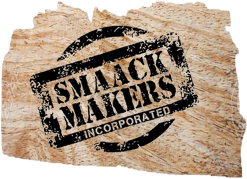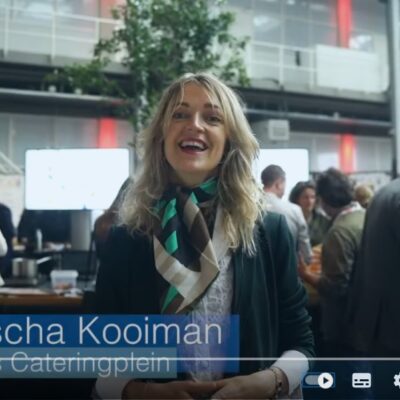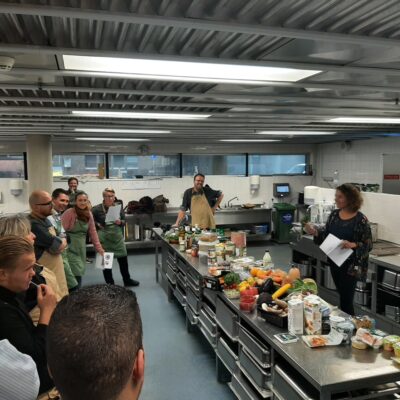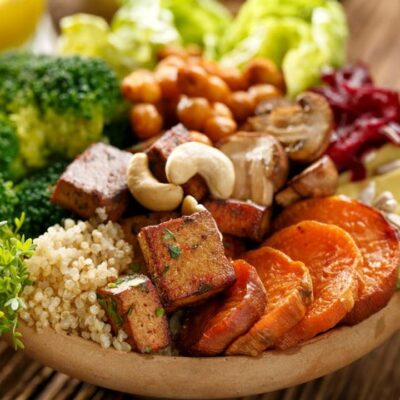
What is our challenge?
From feeding 9 billion people to nourishing people & planet.
This weekend the Science-Policy-Business Forum on the Environment took place. This was linked to the United Nations Environment Assembly 2019 . And for the first time, in both conferences Sustainable Food Systems was one of the main themes.
Happy as I was to have a role as moderator on the ‘Sustainable food systems for healthy people on a healthy planet’ session, it makes me extra excited that finally an issue gots addressed that before was too controversial to put on the agenda at this level of desicon making conferences. Namely, the protein transition.
A double win, because the 180 ministers gathering here surely are given a push by this to consider food and agriculture as an important issue in their policies. And not just food and agiculture, but sustainable food systems.
This session helped to understand what pathways towards a sustainable food system could be. And to start with the very beginning the need to ask ourselves what we actually see as the challenge here was addressed in the introduction; The way we see the issue around food and agriculture and the policies we develop depend from the story we tell ourselves about the challenge we are facing. The narrative we follow. So far we very often put the challenge as ‘How to feed the world when we are with 9 billion people’.
Putting the challenge like that, automatically drives us towards a production paradigm, a cue to efficiency, efficiency, efficiency, and producing more with less. About maximizing in stead of optimizing.
If we keep holding on to this narrative, we will not address the health issues we are facing. We will not address the environmental disasters we are currently causing. We will not see the linkage between health and sustainability.
A sustainable food system contributing to a healthy planet with healthy people will only be achieved if we change the way we think, produce and eat. We need to move beyond the how much and how to produce and move towards the WHAT we produce. And who or what we actually feed. Now the greatest food loss is caused by feeding animals. That makes less animal based and more plant based products in our diet one of the most important interventions. AND We do NOT only want to FEED. We want to nourish.
So let’s search for new narratives that do link sustainability, environment and health. For example: “We want to nourish the world and the people living there”.
We have to keep on mind we are talking about a systems change. Maybe even meaning a change of what we see as the challenge we are facing.
Want to read more? Check out part 2 of this blog
Deel dit artikel
Andere berichten
Overheid ziet winst in duurzame en gezonde catering
Duurzamere facilitaire dienstverlening zorgt voor positieve impact. Maar op welk vlak is nu de meeste winst te behalen, in termen van klimaatimpact én gezondheid? Juist: catering. Tijdens de Circulaire Beurs van de Rijksoverheid op 10 Lees verder
Compass Grop toont lef in haar ambities
Afgelopen jaar heeft Smaackmakers Compass Group mogen adviseren in het formuleren van een visie, missie, doelen en maatregelen om te komen tot plantaardiger cateringaanbod. Ons ideaal. Want het begint bij het neerzetten van een hele Lees verder
Vegan is “Hip” en niet meer Geitenwollen Sokken
Trends in catering 2022: “Plantaardig wordt het nieuwe normaal” Interview met Natascha Kooiman in Nieuwsbrief FACTO van 5 januari 2022: Welke trends op het gebied van (bedrijfs)catering kunnen we voor het komende jaar verwachten? Met Lees verder


